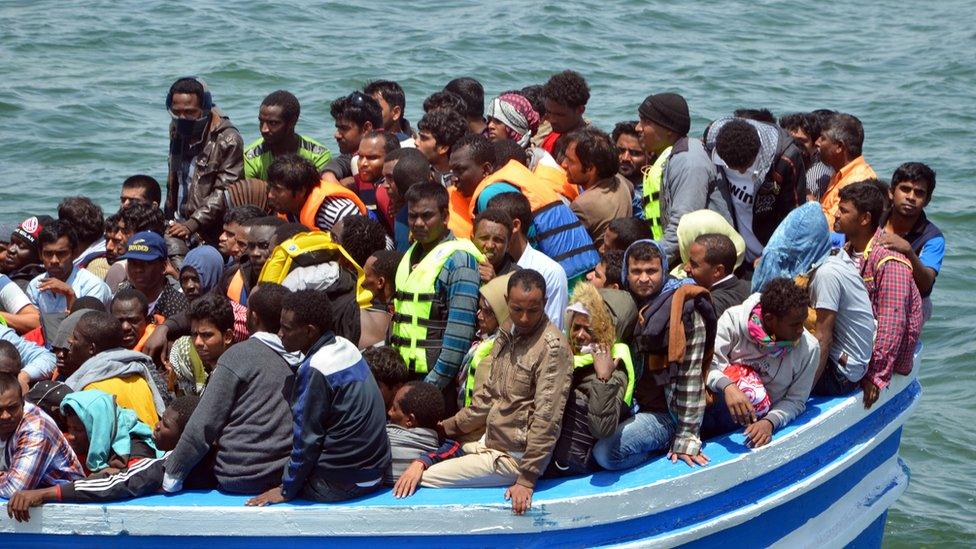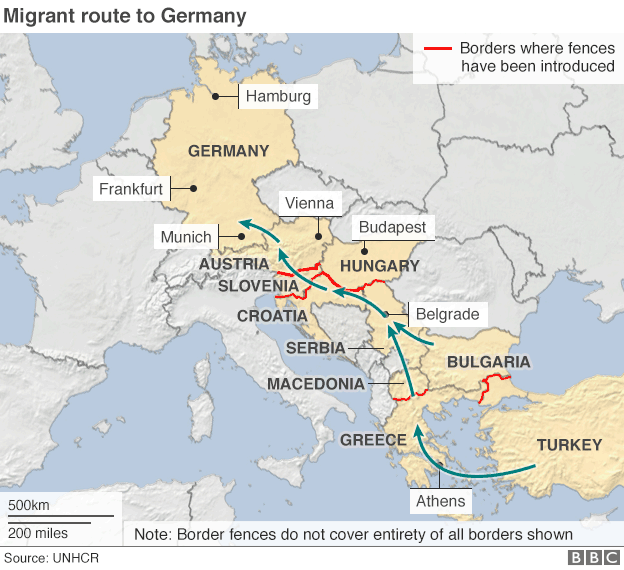Fewer North African migrants enter Germany
- Published

Germany is the destination for many migrants who sail to southern Europe on overcrowded boats
The number of migrants from North Africa arriving in Germany has fallen sharply this year, officials say.
New arrivals from Algeria, Morocco and Tunisia reached 3,356 in January but in March the number registered from those countries was 480, Germany's Federal Office for Migration (BAMF) said.
Germany wants to declare those countries officially "safe", to make repatriation of non-refugees easier.
North African migrants were blamed for many assaults on women at New Year.
Germans were shocked by the scale of the sexual violence in Cologne, in which most suspects were men who had entered Germany illegally or sought asylum. There were similar attacks - to a lesser degree - in Duesseldorf and Hamburg.
The "safe country of origin" designation would enable officials to argue that returning migrants to those countries - jointly known as the Maghreb - would not violate their human rights.
However, human rights activists point out that there is persecution of homosexuals in the Maghreb and cases of torture in Morocco.
The German parliament has not approved the "safe country" designation, so it is not yet law.
Overall numbers down
Late last year the numbers of Maghreb migrants entering Germany surged, relative to those from other countries.
But the main countries of origin were Syria, Albania and Kosovo.
Those who can prove they fled war or persecution usually get refugee status and a right to asylum. Nearly all Syrians qualify - but very few Balkan migrants do.
Only 2.1% of the Maghreb migrants registered got international protection status in Germany last year, and the figure for the first quarter of this year was 0.7%, said the BAMF report, quoted by Funke media group newspapers.
The total influx of migrants to Germany has slumped in recent weeks, since Balkan states began tightening their borders and an EU deal with Turkey took effect, aimed at curbing the migrant flow to Greece.
Some 20,000 people applied for asylum in Germany in March; in December it was 120,000. More than a million migrants entered Germany last year - a record number.
EU-Turkey migrant deal is 'working'


A note on terminology: The BBC uses the term migrant to refer to all people on the move who have yet to complete the legal process of claiming asylum. This group includes people fleeing war-torn countries such as Syria, who are likely to be granted refugee status, as well as people who are seeking jobs and better lives, who governments are likely to rule are economic migrants.